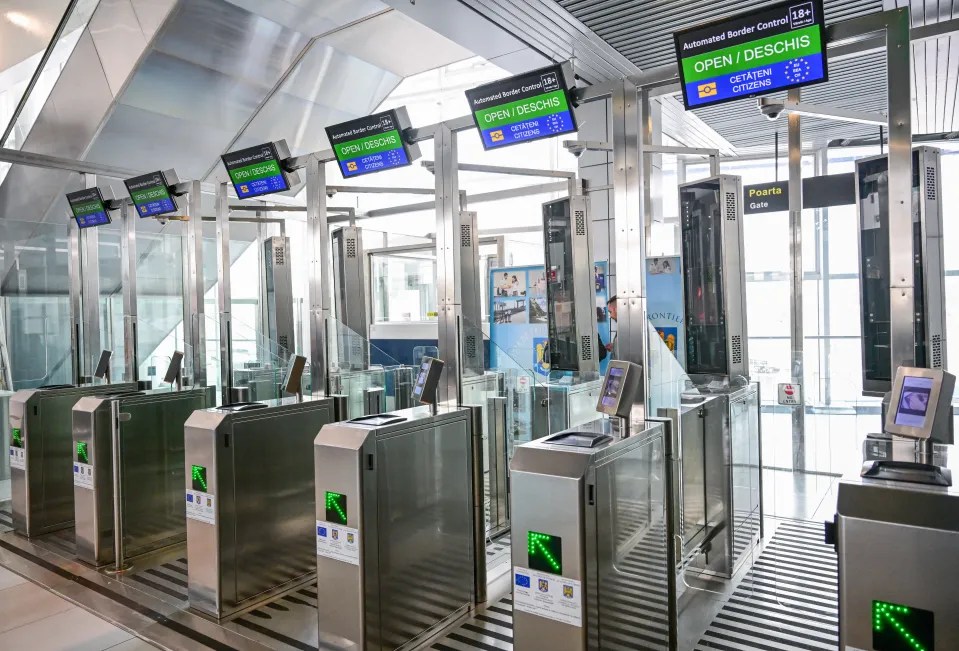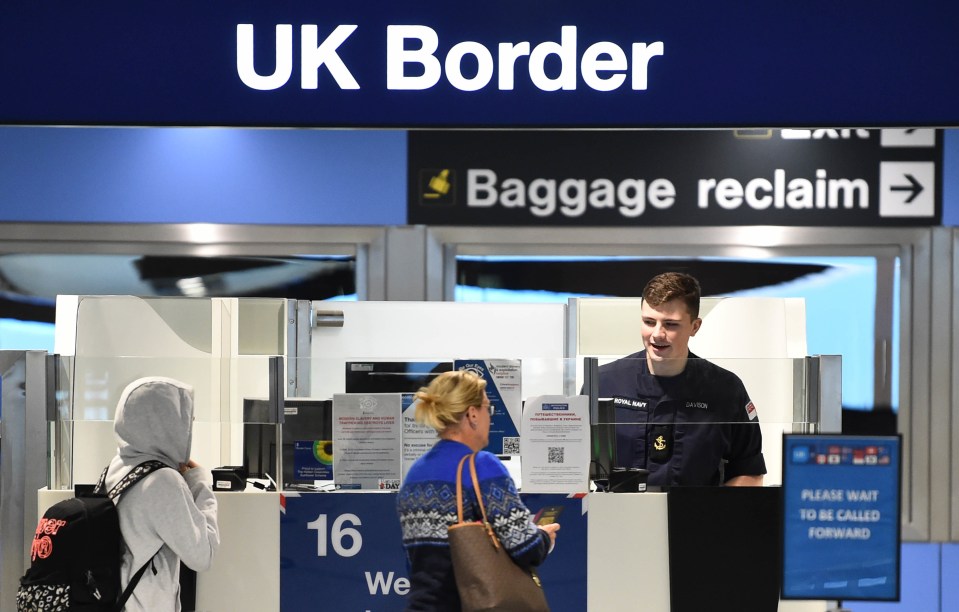THE long-delayed European Entry/Exit System that was set to come into force next month has been quietly postponed.
At the end of August, the EU Home Affairs Commissioner Ylva Johansson confirmed the new Entry/Exit System (EES) would come into force on November 10, 2024.
However, one month before the new rules were set to be introduced they were quietly delayed.
According to Reuters, Ylva Johansson made the following statement following a meeting of European ministers: “November 10 is no longer on the table”.
Following the announcement, Johansson told the BBC: “It’s clear that we’re not going to be ready for the 10 November.
“We will be going for a phased approach, step by step.”
A phased introduction of the new EES is now being discussed by officials who will meet in the coming weeks to hash out details.
A report from the Justice and Home Affairs Council, which was published on October 10, 2024, reads: “To ensure a smooth transition, the Commission outlined plans to roll out the EES in a phased manner. The details of this approach will be established in the coming weeks.”
The news comes days after easyJet boss revealed UK travellers could risk being stuck on planes after arriving at European airports once enhanced border checks are introduced.
In an interview at the annual convention of travel trade organisation Abta in Costa Navarino, Greece, Mr Lundgren said it is possible EES will cause airport terminals to be congested with arriving passengers waiting to be processed, leaving no room for additional travellers.
“In the worst case you actually can’t disembark, you hold people on the plane,” Mr Lundgren warned.
He said: “We have to think about what can actually happen.”
Mr Lundgren predicted “there will be some disruption” from EES as “it is a new procedure”.
Earlier this year, France, Germany and The Netherlands wrote to Ylva Johansson saying they wouldn’t be ready by the November deadline.
It is not yet known when EES will come into force.
However, a source told the Independent: “It will almost certainly be well into 2025 before there is any chance of it having a significant effect on British travellers.”
When the border checks do come into force, it’s feared that EES could cause huge delays at the border due to the extra checks needed.
The new system will replace the need to wet stamp passports but other checks will be required.
November 10 is no longer on the table
Passports will need to be scanned and passengers will need to have their fingerprints scanned and photos taken.
Delays are expected at the UK-France borders where queues could reach 14 hours at some ferry ports.
Tim Reardon, head of EU exit for the Dover Harbour Board previously warned last year: “There is no way of doing a biometric control without getting everyone out of the vehicle.
“That’s the one thing on our site which cannot happen because you’re in the middle of live traffic.”
And Neil Baker, Kent County Council’s cabinet member for roads said it could cause a “serious mess”.
He told fellow cabinet members on January 4: “I don’t think we can downplay how big of an impact it could well have on Kent and over an extended period.”
Holidaymakers have previously been warned to travel with “extra supplies” such as food, water and nappies in case of the huge queues when the checks are introduced in November.
The Sun’s Head of Travel explains what the EES means for you

The Sun’s Head of Travel Lisa Minot has explained everything you need to know about the upcoming EES.
“THE looming introduction of the long-delayed European Entry Exit System could lead to yet more pain for passengers leaving the UK.
“The new system – designed to strengthen the European borders – will require every passenger to have their biometrics recorded.
“Every traveller will have to scan their passport and have a facial biometric before providing prints from the four fingers on their right hand. Children under 12 will have to do the biometric but will not have to have their fingerprints taken. All will then have to answer four questions about their reason for travel.
“Both fingerprints and facial biometrics will be required the first time a traveller uses the system, and then just one of the two for every subsequent trip. Then every three years you’ll be expected to go through the full process again.
“While airports across Europe have the space to add this additional process it is still going to add a huge amount of extra time to the customs checks. Although it will remove the need to have stamps in your passport, everything will still need to be checked either by a border officer or an e-gate.
“Where things could get really bad are at ports like Dover – where there are significant space constraints and multiple individuals will be travelling together in cars and coaches.
“Both Eurostar and Le Shuttle have invested millions in new facilities to process passengers but it is almost inevitable that the first few months of the system could lead to lengthy delays as we all get used to the new system.”
Other European governments have expressed their concerns too – Slovenia said it would take “four times longer” to process passengers, while Austrian authorities said it would be at least “double compared to the current situation”.
EES was meant to be introduced back in 2022.
The new border checks were then rescheduled for May 2023 and then late 2023, before the latest deadline was set.
Sun Online Travel have contacted the EU Home Affairs Commission for comment.
The new ETIAS system is also to be introduced, although this isn’t until next year.
ETIAS, a visa-waiver, will require all Brits to pay €7 when visiting Europe, and will last three years.
An official start date in 2025 is yet to be revealed

